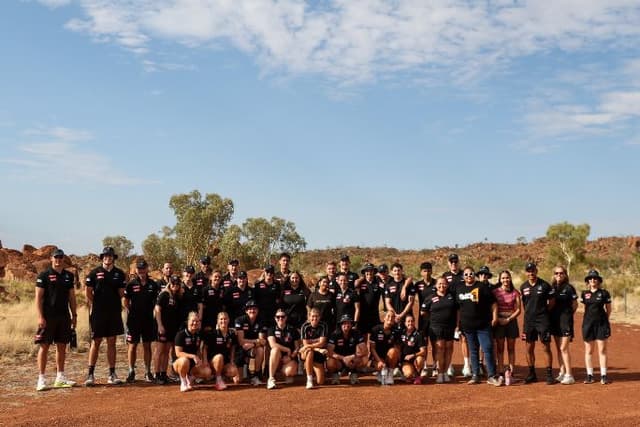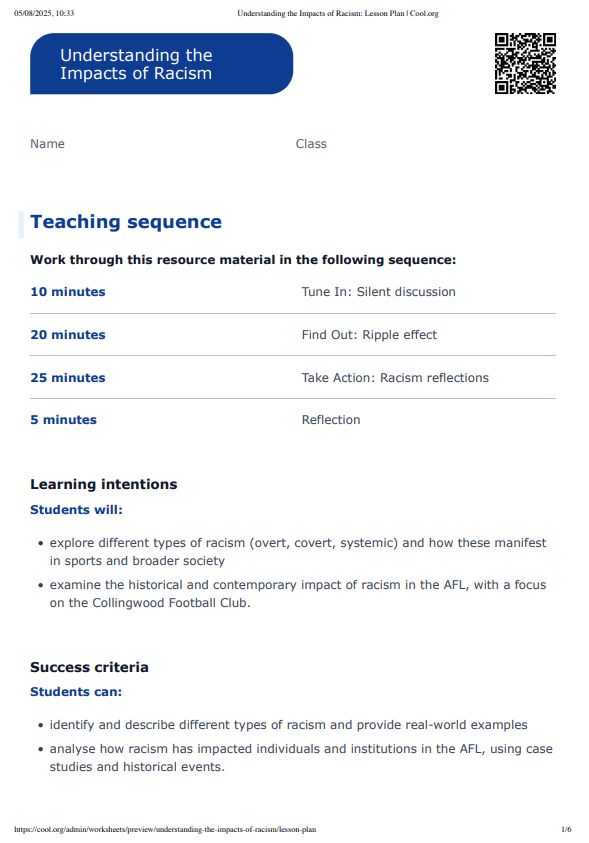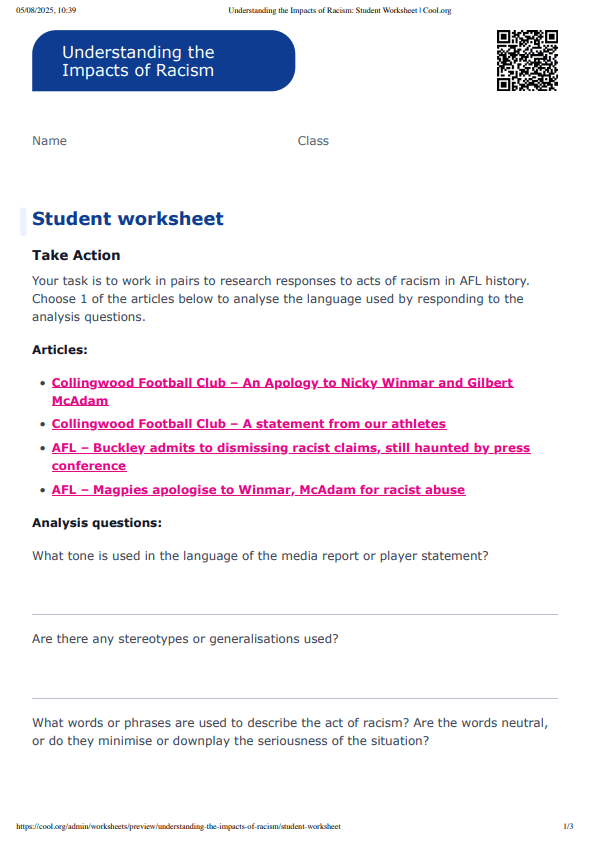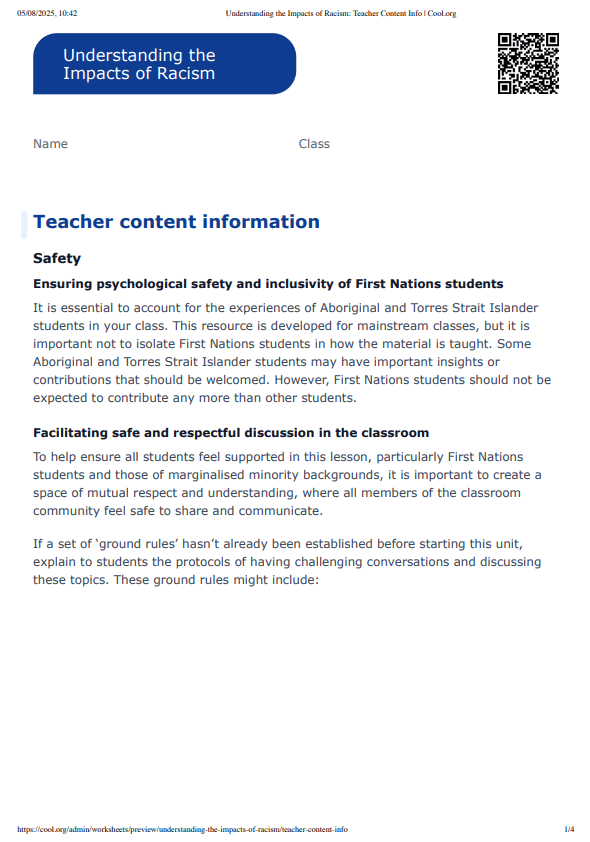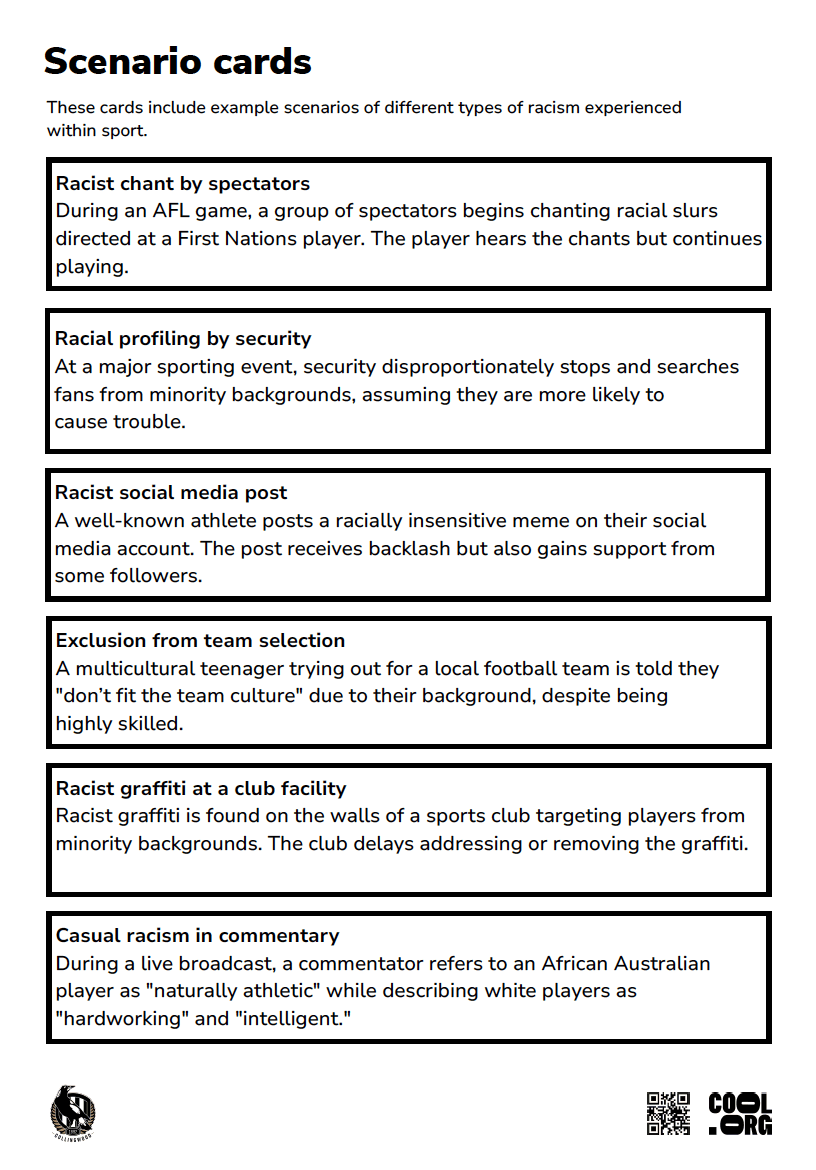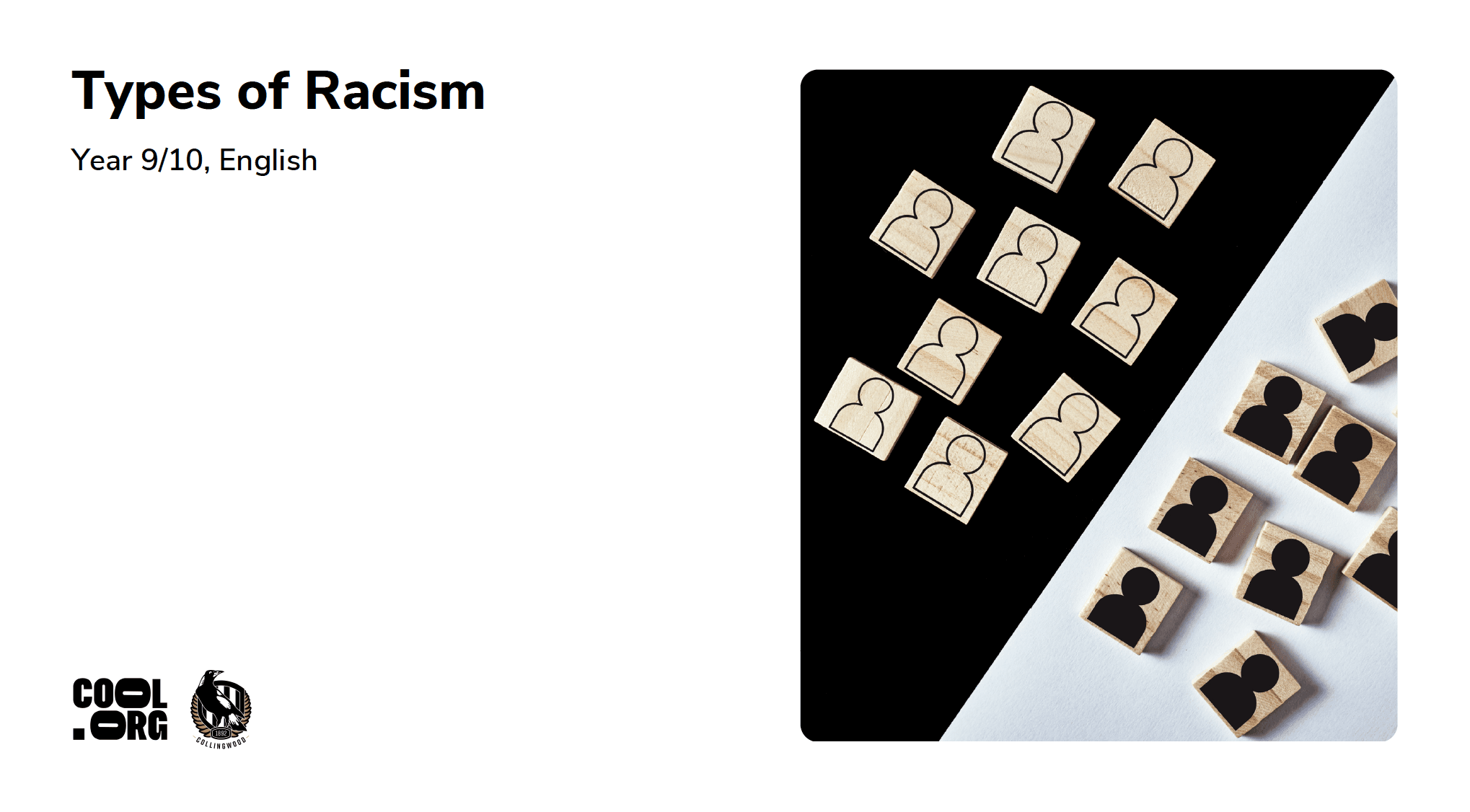Learning intentions
Students will:
- explore different types of racism (overt, covert, systemic) and how these manifest in sports and broader society
- examine the historical and contemporary impact of racism in the AFL, with a focus on the Collingwood Football Club.
Success criteria
Students can:
- identify and describe different types of racism and provide real-world examples
- analyse how racism has impacted individuals and institutions in the AFL, using case studies and historical events.
